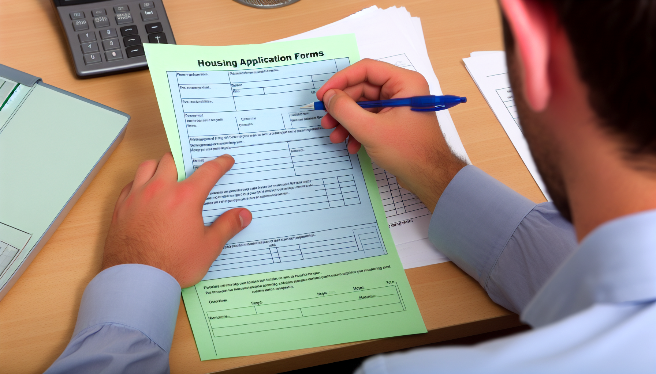Navigating the rough waters of financial difficulty can be tough, and when you’re in need of a safe harbor, low-income government housing assistance can be your anchor in a stormy sea. Let’s break down how to apply for this lifeline and keep your head above water.
Understanding the Basics of Applying for Low-Income Government Housing Assistance
When you’re toeing the line of financial straits, finding affordable housing is paramount. Low-income government housing assistance is designed to help those struggling to make ends meet by providing access to affordable rental housing. The U.S. Department of Housing and Urban Development (HUD) is the main federal agency that oversees various assistance programs like the Housing Choice Voucher Program (Section 8), Public Housing, and others.
The first step is to determine your eligibility. Qualification is based on several factors including your income, family size, and the median income in your area. It’s important to gather all the necessary documents such as pay stubs, tax returns, and identification before you apply.
Exploring the Impact of Applying for Low-Income Government Housing Assistance on Industry
You might wonder how your application affects the bigger picture. These programs play a crucial role in maintaining a balance in the housing market and supporting the local economy. By aiding low-income families in securing housing, the government enables a more financially robust and diverse community. It sustains a constant demand for property rentals, which in turn helps landlords and property management companies to operate viably.
Moreover, this assistance can indirectly benefit a broad array of local businesses. When families have more stable housing situations, they can allocate their resources better, potentially leading to increased local spending, contributing to the economic health of the community.
Key Benefits of Embracing Applying for Low-Income Government Housing Assistance
The most evident perks are financial. This form of aid can drastically reduce your monthly housing costs, freeing up your budget for other essential expenses like groceries, medical care, and education. Beyond that, it can provide stability and security to families who otherwise might face the stress of relocating frequently or living in substandard conditions. With a stable home base, you’re better positioned to focus on long-term goals, like furthering your education or securing a better job.
Overcoming Challenges Associated with Applying for Low-Income Government Housing Assistance
It’s not a cakewalk; there are hurdles on this path. Waiting lists for these programs can be long, and the application process can seem daunting. It’s key to stay organized and persistent—make sure to keep copies of all your documents and follow up on your application status regularly.
If you face denials, don’t lose heart. Reach out to local non-profits for assistance or consider other options like low-income housing tax credit properties, which can also offer reduced rent based on your income.
Future Prospects: What Applying for Low-Income Government Housing Assistance Means for Tomorrow
Securing housing assistance is not just about weathering the current financial storm; it’s also planting seeds for a brighter future. With a roof securely over your head, you can craft a more stable financial plan and maybe even start saving for a rainy day fund or future investments.
Remember, seeking help is not a sign of weakness, but a strategic move towards self-sufficiency. As government policies and the housing industry evolve, staying informed and proactive about your options will be vital in navigating tomorrow’s seas.
Embarking on the journey of applying for low-income government housing assistance may seem daunting, but it’s a solid step towards ensuring that rough financial times are just a chapter, not your whole story. Keep your focus on the horizon, friends, and steady as she goes.



